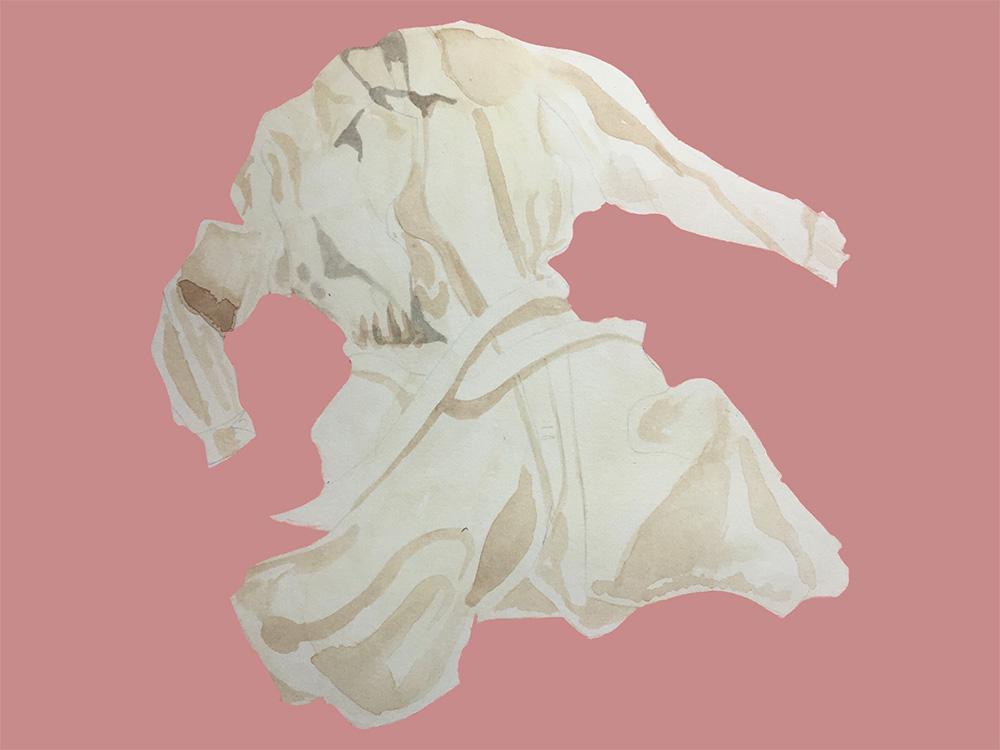Ahhhh. It’s finally cold enough to break out the heavy stuff, by which I mean real winter coats.
Vancouver being a coastal city, the weather is usually mild. This year, the thermometer barely dipped below zero, and on most days there was genuine heat in the sunshine. In other parts of Canada (approximately 98 per cent, give or take), a good winter coat is the only thing that stands between you and certain death.
Ideally, your coat should be your best friend, loyal as a birddog, stalwart as a soldier, warmer than a menopausal female. Have I forgotten any other clichés?
Other writers know this well.
In the new Netflix series Pretend It’s a City, Fran Lebowitz, who hates almost everything but loves coats, stalks the streets of Manhattan in a series of well-tailored ensembles. The writer/raconteur favours an over-sized mannish silhouette that demands space and deference. A bullish style — part swagger, part safety, that yells in a Bronx honk, “Hey, I’m walking here!”
Vancouver’s own William Gibson is another coat obsessive.
A goodly portion of the New Yorker’s 2019 profile of Gibson was dedicated to his devotion to clothes and “their semiotic histories.” The perfect jacket, in Gibson’s case, means multiple jackets, including an Eddie Bauer 1936 Skyliner down jacket (confession: I own one of these as well), as well as an entire room dedicated to Acronym, a Berlin-based design company. (Note: these coats are eye-wateringly expensive, so best tailor your desire according to your budget.)
Gibson’s coat room is described with a degree of sartorial lust by the New Yorker’s Joshua Rothman. “As a longtime Acronym lurker — I don’t own any, but would like to — I was curious to see the jackets, which enable excessive, even fantastic levels of functionality.”
Gibson also favours MA-1 flight jackets from Tokyo’s Buzz Rickson, a company that recreates historically accurate military outerwear. A collaboration between Gibson and the Japanese retailer gave rise to a black version of the famed jacket that instantly shot to the top of collector lists.
Even Nikolai Gogol understood the life changing power of a good coat. The Russian master’s story The Overcoat, with its tragic aspirations, resonates still. As fellow Russian writer Fyodor Dostoyevsky supposedly said, “We all came out from Gogol’s Overcoat.”
As the temperature began to descend this week, visions of coats I have known and loved over the years have come floating back, fashionable spectres from earlier times and climes.
As a child, I hated my winter coat. Not all of them, but one in particular. In the era of puffy ski jackets, my sister and I received matching faux fur coats for Christmas. Styled like miniature versions of elderly lady coats of the time (think Joan Crawford in chubby mink), we were told to wear them on pain of death or worse. So, we wandered the playground, miserably swaddled in gold and chocolate fuzziness, like two tiny octogenarians, consigned to stiffness and deep agonizing alienation.
My point is that there’s nothing worse than feeling unlike yourself in the one item of clothing that should most embody your sense of self.
To this day, that feeling of being in the wrong coat haunts me, although I’m hard-pressed to say where exactly it comes from. What mysterious place in the brain is able to monitor down to the exact millimetre what feels right or wrong about an article of clothing?
Why do some coats settle on your shoulders like they were wafted there by angels, and others refuse to conform, but buckle and chafe? Price has nothing to do with it. Some of the most expensive coats I ever bought I ended up giving away because they simply didn’t work, whereas some random jacket found at a thrift store becomes a faithful daily companion.

Over the years, I’ve had a number of torrid love affairs with coats. In the ‘80s, I gave my teenage heart to a dark grey wool jacket with dolman sleeves that draped across my body like the wings of a bat. It took months to earn enough money to buy it. While I saved my pennies, I would visit the coat, making weekly trips to the boutique. Until one glorious day I’d squirrelled away enough Christmas, birthday and the odd spot of babysitting money to buy it.
Sometimes coats come into your life in deliberate fashion: the long stalking, the saving campaign. Other times there’s a happy accident, a gift from the fashion gods: “Here you go, the perfect navy peacoat, not too heavy, not too light, the darkest shade of French navy imaginable, buttons as crisp, round and shiny as the eyes of seal pups.”
You can also love the coats of the people you love, whether it’s your first serious boyfriend, as mean as a snake in his vintage leather jacket, or your grandfather’s well-worn plaid chore coat, still hanging where he left it. Although he’s been dead for years, the coat remains, carrying with it the smell of diesel fuel and sadness.
Trends come and go, but some styles never budge, whether it’s a Burberry trench or a Barbour waxed jacket. The latter item surged to newfound fame after the success of the series The Crown, with its emphasis on the Sloane Ranger-style of a young and coltish Princess Diana. The Barbour coat, with its air of old-world charm is fusty, yes, but still covetable and desirable. I also own one.
Once you’ve come to the end of your relationship with a beloved coat, you can’t just give it away, like taking Old Yeller out behind the barn and putting him down. A Viking funeral might be more appropriate. Put your old coat on a skiff, push it out to sea, then fire a flaming arrow at it. Sit on the sand, drink mead, and cry as your coat/boat slowly burns down to the water.
I have coats I don’t even wear, I just admire them so much as objects that I can’t bear to part with them. One in particular, a 1940s raincoat made from sleek material in the palest shade of beaten gold. The fact that something so beautiful was also just an ordinary item I find astonishing. Sometimes I just take it out, look at it and marvel. The coat has been obviously well-used, there’s a hole in the shoulder and other places of subtle repair, but still it maintains its innate grace, as lovely as a new day.
Sure, fashion is silly and frivolous, but it’s also glorious. Fran Lebowitz gets it.
In one of the highlights from Pretend It’s a City, she recounts famous moments in the cultural past through stories of clothes. In an onstage interview with Spike Lee about the infamous 1971 boxing match between Muhammad Ali and Joe Frazier, arguably one of sports all-time greatest moments, all she remembers is the “fantastic fur coats and hats of the attendees.”
I feel you Lebowitz, you and your cashmere shoulders. I really do. ![]()
Read more: Media
















Tyee Commenting Guidelines
Comments that violate guidelines risk being deleted, and violations may result in a temporary or permanent user ban. Maintain the spirit of good conversation to stay in the discussion.
*Please note The Tyee is not a forum for spreading misinformation about COVID-19, denying its existence or minimizing its risk to public health.
Do:
Do not: